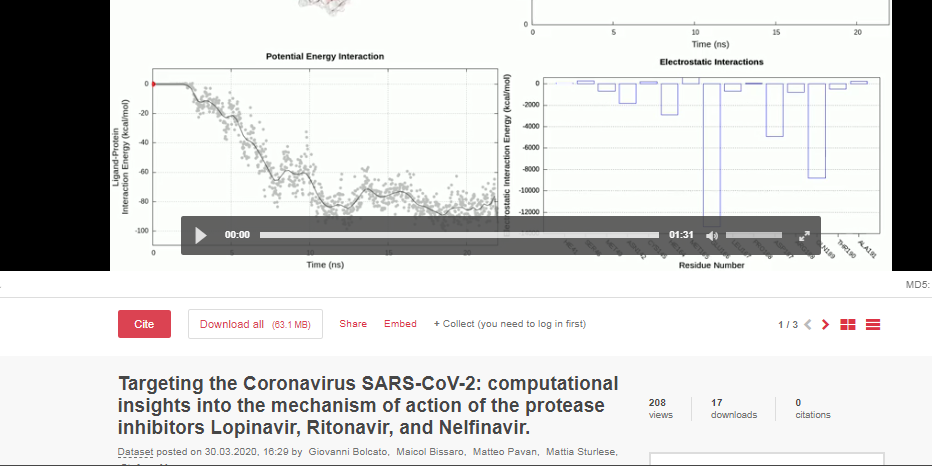Data makes a difference: supporting authors with COVID-19 data at Springer Nature
Published in Bioengineering & Biotechnology

Sharing underlying data behind a research publication supports reproducibility, as well as the ability of the scientific community to assess and make use of research publications, their methods and conclusions. During the current pandemic, there is daily focus on what data are being shared and what they ‘mean’. Mainstream media have even echoed the calls of ‘where is the data?’ in support of scientific claims, a question close to the heart of the research data community and its efforts to promote FAIR and open data.
There is therefore an opportunity right now to demonstrate how research data that are shared in recognised repositories, with good metadata supporting the FAIR principles and linked appropriately from related articles, can make a difference.
Helping COVID-19 authors with their data needs
Springer Nature is committed to making SARS-CoV-2 and COVID-19 research free to access. As well as making articles, book chapters and commentaries openly accessible, we are also working hard to get underlying data shared as openly, widely and rapidly as possible. As signatories on the consensus statement, “Sharing research data and findings relevant to the novel coronavirus (COVID-19) outbreak” we are keenly aware of the significance that sharing underlying data has on the reproducibility and reliability of research. Good data curation plays a key role in making this data discoverable and understandable to the research community.
To support this, our Research Data Support service is available at no cost for authors with COVID-19 data submitting to Springer Nature journals. Our expert research data team are helping researchers to:
deposit their data in the Springer Nature figshare repository quickly and easily
save time organising and sharing their research data in a useful way, advancing discovery for all
increase exposure of their research to the scientific community (see this recently published article in PLOS ONE on the citation benefit of sharing underlying data)
meet publisher, funder or institutional requirements on data sharing
COVID-19 data published so far
Research datasets published using Research Data Support so far range from an in-silico approach to potential vaccine candidates effective on the Indian population, data and code supporting development of a cheap and quick Raman spectroscopy method for screening COVID-19 and a statistical analysis of how social distancing policy and quarantine can suppress the outbreak of novel coronavirus in developing countries. We will be updating this page with the latest datasets: https://springernature.figshare.com/COVID19.

During the COVID-19 pandemic we are strongly encouraging researchers to publish their data as rapidly as possible, hence many of these datasets are openly accessible before their related articles. As a result you may find related article links on the data records are not yet active.
Find out more
Do you need help sharing your research data? Using the Research Data Support service is quick and simple. Find out more and get started today.
If you are a Springer Nature author publishing COVID-19 research, find out more about our free Research Data Support offer.




Please sign in or register for FREE
If you are a registered user on Research Communities by Springer Nature, please sign in